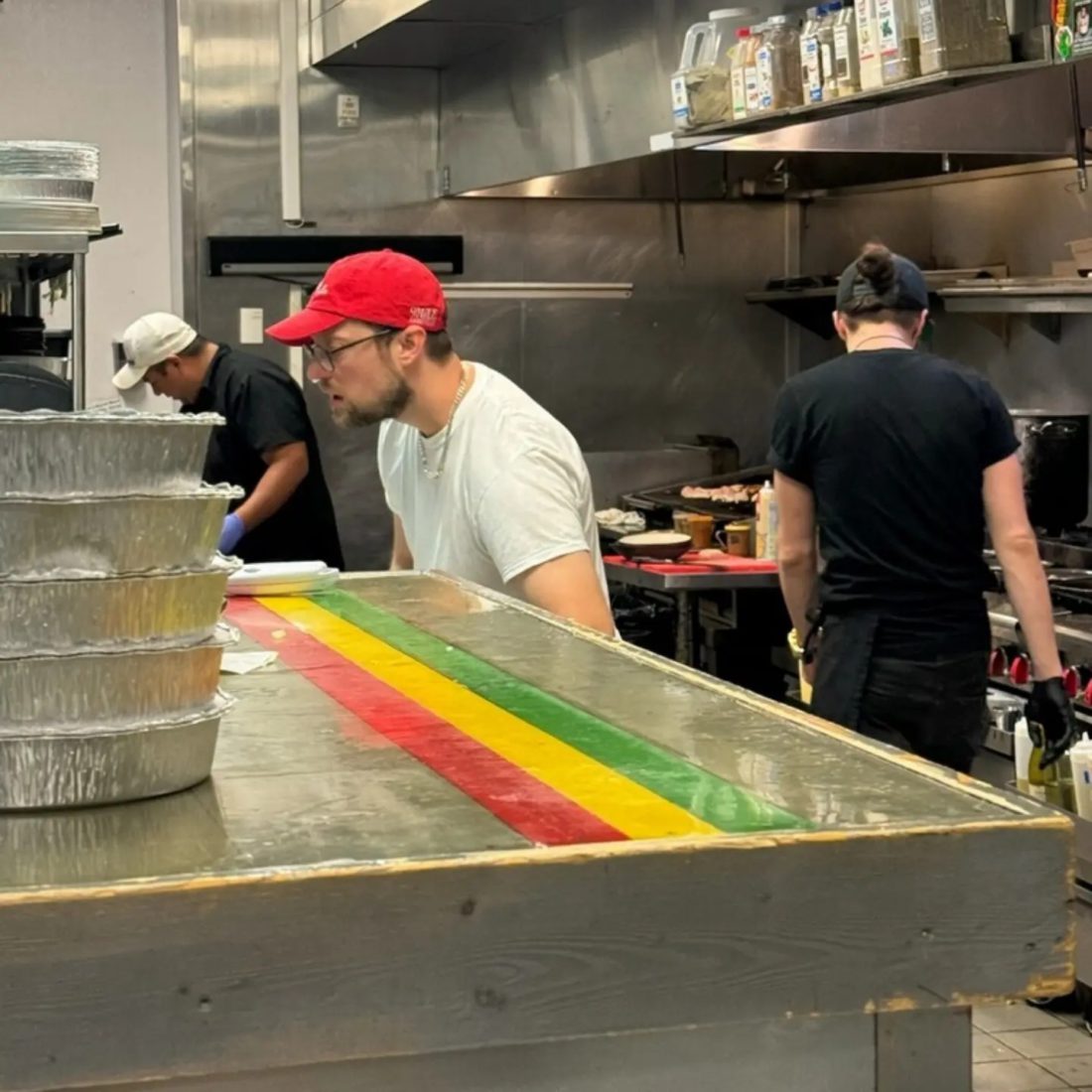Asheville restaurants that have been without running water since Tropical Storm Helene hit on Sept. 27 will have the chance to reopen if they can demonstrate a reliable source of water for cooking, hand washing and more.
Buncombe County and the state have created an emergency operations plan (EOP) application for restaurants and other establishments that prepare and sell food. The two-page document is a streamlined version of the lengthy form the state normally requires restaurants to fill out when they are without water.
“It really just gets to the nuts and bolts of what you need to have in place if you want to open up,” Felissa Vazquez, the county’s environmental health supervisor, told restaurant operators during an Oct. 9 Zoom call.
Even so, some restaurant operators say the process of providing a temporary water source is too cumbersome for them to consider reopening before the City of Asheville restores service. What they need, they say, is financial help.
Eateries that apply for an EOP must specify what their water source will be before they can get approved. If they are using bottled water, for instance, they must provide receipts or name the company it was purchased from, Vazquez says.
“If the water is going to sit for more than two or three days, just know that the residual chlorine is no longer there to consider that water safe,” she explained. “So we don’t want to bring a big tanker truck that’s going to sit there with this water for a week or two weeks. Just be mindful about how you are obtaining your water and make sure you have an approved water source.”
Among other things, restaurants also have to explain how they will provide ice if they are planning to serve it to customers and must describe their hand-washing setup. If they are providing dine-in service, they are required to say where customers will go to the restroom.
The state is providing inspectors to review applications. Once an application is approved, county inspectors will visit the restaurant to give a final OK. “They don’t really know what’s here, so it’s fair that they want us to make sure that you do have a tanker, that you have that potable water on site.”
Meghan Rogers, executive director of the Asheville Independent Restaurant Association (AIR), praised the efforts of the county and state.
“I think they’ve worked hard to prioritize food safety and food handling while also offering some flexibility so that restaurants can bring some of their team members back to work,” she says.
The county could not provide numbers about how many establishments had applied or been approved for an EOP.
‘A nonstarter’
But some establishments are not planning to start selling food again until water service is back. That could take several more weeks as the City of Asheville works to repair catastrophic damage to its water system.
“As far as Old Europe stands right now, we’re not trying to open up,” says Abby Moore, general manager of the Broadway pastry shop. “You have to go through the emergency operation plan process, and it would be way too much of a hassle for us.”
Since the day after the storm, Old Europe has been giving out free food and coffee (prepared with bottled water) and acting as a distribution hub for donated supplies. The state does not require food service establishments to have a permit if they are giving away food for free, says Jessica Silver, the county’s environmental health program manager.
Aaron Thomas co-owns Nine Mile, a Caribbean-influenced restaurant with three locations. On Oct. 9, he was able to reopen the Biltmore Park site, which has running water.
“We had a record-breaking night, so the community really came out and supported us,” he says. “And I hope it’s the same way going forward because one night of record-breaking business won’t pay the bills.”
Thomas is not planning to reopen his Montford and West Asheville restaurants until water is restored. The logistics of bringing in a temporary water supply are not realistic, he says.
“To me it’s, it’s a nonstarter,” Thomas says. “When you’re pumping out 300 covers a night in a fast-paced, busy restaurant, that doesn’t work. We need to stay closed until we can get back up and running to normal.”
Thomas says restaurants affected by Helene need grants to help them stay afloat financially. Loans like those that were available during the COVID-19 pandemic will not suffice.
“October is our busiest month, so to lose that at Montford and West Asheville is a really big deal,” he says. “Why should we have to go in debt to keep functioning as a business that provides jobs for people when this wasn’t our fault?”
AIR’s Rogers says the organization is exploring ways it can help support restaurants and employees financially, though it doesn’t have a plan in place yet.
“I am deeply concerned for our restaurant employees,” she says. “October is traditionally a very busy month for them and helps sustain them through the slower winter months.”
Rogers says the restaurant industry, at a time when it is dealing with its own problems, has stepped up in a big way by giving free meals and providing water and supplies to the community.
“I have been absolutely blown away, but not surprised, by the generosity that I see from our restaurant community. They are doing what they do best, and that’s feed people.”




How can nail salons open having non potable water? Pedicure chairs have hot and cold water running into them. Nail customers wash their hands in the sinks.